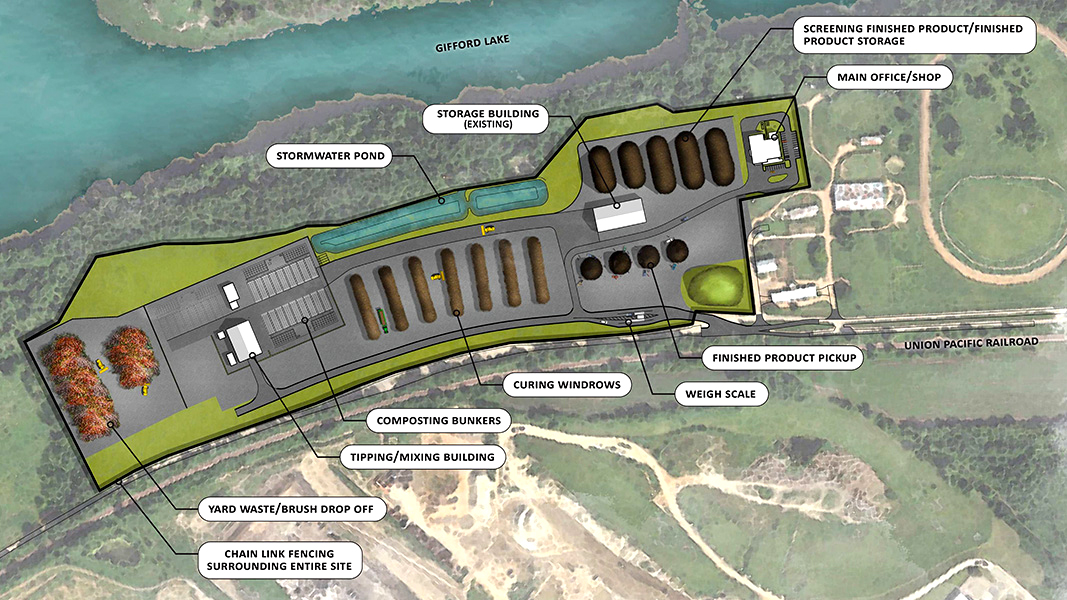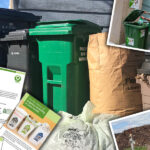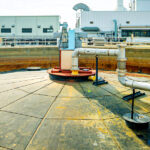Top: Illustrated site plan for SMSC’s new Dakota Prairie Composting in Louisville Township, MN. Rendering courtesy of SMSC
The Shakopee Mdewakanton Sioux Community (SMSC) has owned and operated a source separated organic materials (SSOM) turned windrow composting facility on tribal land about 25 miles southwest of Minneapolis, Minnesota since 2011. Originally sized to handle 45,000 tons/year of SSOM, horse manure and bedding, and some industrial food processing residuals, the growth in SSOM diversion programs in the greater Minneapolis-St. Paul metropolitan region, coupled with only a handful of permitted SSOM composting facilities in the region, have resulted in tremendous growth in feedstock flow for the SMSC facility. Planning for either expanding the existing facility or relocating to a new site began in 2017.
In 2021, the SMSC decided to purchase almost 330 acres of land zoned Heavy Industrial along the Minnesota River in Shakopee in Scott County and to use a portion of the site for a relocated and expanded SSOM composting facility. The new facility will be sized to handle 115,000 tons/year initially with a capacity of 172,500 tons/year at full build-out. The facility will use aerated static pile composting with the technology provided by Engineered Compost Systems. The purchased land is not part of the SMSC’s land trust, so the Minnesota Pollution Control Agency (MPCA) has jurisdiction over the tribe’s new plant (the current facility’s operations on SMSC trust land are regulated by USEPA Region 5 in Chicago).
The SMSC elected to prepare a voluntary Environmental Assessment Worksheet (EAW) for the siting process. An EAW is a precursor to an Environmental Impact Statement (EIS). The tribe’s EAW was submitted to the MPCA in August 2022 and the agency issued a Negative Declaration on the EAW in March 2023, meaning the SMSC would not have to prepare an EIS. The Solid Waste Facility Permit for the new SMSC facility was issued by the MPCA on August 8, 2023.
As the MPCA won’t allow the discharge of any storm water that comes in contact with either SSOM or with compost that has not yet met a Solvita stability rating of 5, the new facility includes an contact water reuse system to maintain ASP moisture content at desired levels and prevent discharge of water. Storm water runoff that comes in contact with other areas on the 92-acre site can also be reused for the composting process or discharged after being treated by the storm water management system.
The MPCA’s requirements also include air emissions permits for the compost-covered ASPs, with both the positive air biolayer and the negative air biofilter becoming regulated air pollution control devices. Pollution removal compliance testing will be needed 180 days after the facility starts up. Negotiations are ongoing on how many of the 18 ASPs in Phase 1 will need to be sampled and how many sampling locations are needed on each ASP and on the two biofilters.
The tribe broke ground on its new state-of-the-art organics recycling facility named Dakota Prairie Composting in Louisville Township, on June 27, 2023. Construction cannot begin in earnest until the MPCA finalizes the air emissions permit (expected in September 2023). Winter conditions make construction challenging in Minnesota, so the new facility will be up and running by the third quarter of 2024.













